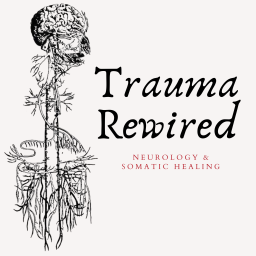
by Ken Kelly and Rory Lees-Oakes
Counsellor CPD- Training and Counselling Student Resources
Language
🇺🇲
Publishing Since
2/1/2016
Email Addresses
1 available
Phone Numbers
0 available

April 26, 2025
Pathological Demand Avoidance (PDA) – Reviewing Client Progress<br /> <br /> <br /> <br /> <br /> <br /> <br /> <br /> <br /> <br /> <br /> <br /> In Episode 336 of the Counselling Tutor Podcast, your hosts Rory Lees-Oakes and Ken Kelly take us through this week’s three topics:<br /> <br /> <br /> <br /> <br /> Firstly, in ‘Ethical, Sustainable Practice’, we look at building your counselling CV – including key features to include, ways to stand out, and how to present yourself professionally.<br /> <br /> <br /> <br /> Then in ‘Practice Matters’, Rory speaks with Nicola Durrant about working with clients who have Pathological Demand Avoidance (PDA) – a profile on the autism spectrum that requires a unique and flexible therapeutic approach.<br /> <br /> <br /> <br /> And lastly in ‘Student Services’, Rory and Ken look at how to review a client’s progress in therapy – and why it’s an important part of ethical and effective practice.<br /> <br /> <br /> <br /> <br /> <br /> <br /> <br /> <br /> Building your Counselling CV [starts at 03:31 mins]<br /> <br /> <br /> <br /> <br /> <br /> A counselling CV is your first professional impression – and it should reflect not only your qualifications but also your values and personal qualities. In this section, Rory and Ken explore what makes an effective and authentic CV:<br /> <br /> <br /> <br /> <br /> Start by making sure it’s well-structured and no more than 2–4 pages.<br /> <br /> <br /> <br /> Tailor it to each job, making sure you reflect the ethos of the organisation you’re applying to.<br /> <br /> <br /> <br /> Be honest about your experience, but also include transferable skills such as active listening, communication, and resilience.<br /> <br /> <br /> <br /> Include professional memberships, ethical awareness, and a commitment to personal development.<br /> <br /> <br /> <br /> A personal statement can be a great way to communicate your motivation, values, and readiness for the role.<br /> <br /> <br /> <br /> If you’ve done any research or CPD, mention this too – especially if it aligns with the organisation’s client group or focus.<br /> <br /> <br /> <br /> Ask a peer or supervisor to read your CV and give feedback – having a second pair of eyes helps spot anything you may have missed.<br /> <br /> <br /> <br /> <br /> <br /> <br /> Pathological Demand Avoidance (PDA) [starts at 29:46 mins]<br /> <br /> <br /> <br /> In this week’s Practice Matters, Rory speaks with Nicola Durrant about Pathological Demand Avoidance (PDA) – a profile on the autism spectrum characterised by a high level of anxiety around everyday demands.<br /> <br /> <br /> <br /> The key points of this conversation include:<br /> <br /> <br /> <br /> <br /> PDA is a survival response to perceived demands – it is not about control or defiance.<br /> <br /> <br /> <br /> People with PDA often mask their anxiety, especially in school or social environments, and release it later in safe spaces like home.<br /> <br /> <br /> <br /> Therapy must be collaborative and low-pressure – avoid direct demands and use invitational language like “I wonder if…”<br /> <br /> <br /> <br /> Strategies such as co-regulation, emotional literacy, and flexible structure help support clients with PDA.<br /> <br /> <br /> <br /> Trauma-informed practice is essential – the behaviours often resemble trauma responses such as fight, flight, or freeze.<br /> <br /> <br /> <br /> Adults with PDA don’t outgrow it – they learn how to manage demands and environments that help them feel safe and in control.<br /> <br /> <br /> <br /> <br /> <br /> <br /> Reviewing Client Progress [starts at 54:29 mins]<br /> <br /> <br /> <br /> Reviewing client progress is a core part of ethical practice, particularly in short-term therapy or student placements. In this section, Rory and Ken look at why reviews are important and how to approach them:<br /> <br /> <br /> <br /> <br /> Reviews allow the client to reflect on progress, clarify goals,

April 19, 2025
335 – Extra-Therapeutic Factors in Supervision Supporting Male Clients in Therapy – How to Begin a Counselling Session In Episode 335 of the Counselling Tutor Podcast, your hosts Rory Lees-Oakes and Ken Kelly take us through this week’s three topics: Firstly in ‘Ethical, Sustainable Practice’, we look at extra-therapeutic factors in Supervision and how a […]

April 5, 2025
WebHealer Special Episode: Understanding Website Design for Therapists with Daragh McLaughlin In this special edition of the Counselling Tutor Podcast, your host, Rory Lees-Oakes speaks with Daragh McLaughlin from Web Healer, a company specialising in website design for therapists, about how to create a reliable, professional online presence. Daragh shares his expert advice on avoiding […]

Dr. Dawn-Elise Snipes

Laura Reagan, LCSW-C

The Knowledge Center

Guy Crawford Macpherson

Rick Hanson, Ph.D., Forrest Hanson

Julia Samuel

Curt Widhalm, LMFT and Katie Vernoy, LMFT

Emma Reed Turrell

Kina Penelope

Jennifer Wallace & Elisabeth Kristof

Annalisa Barbieri

Dr Rangan Chatterjee: GP & Author

David Puder, M.D.

Joseph Lee, Deborah Stewart, Lisa Marchiano
Pod Engine is not affiliated with, endorsed by, or officially connected with any of the podcasts displayed on this platform. We operate independently as a podcast discovery and analytics service.
All podcast artwork, thumbnails, and content displayed on this page are the property of their respective owners and are protected by applicable copyright laws. This includes, but is not limited to, podcast cover art, episode artwork, show descriptions, episode titles, transcripts, audio snippets, and any other content originating from the podcast creators or their licensors.
We display this content under fair use principles and/or implied license for the purpose of podcast discovery, information, and commentary. We make no claim of ownership over any podcast content, artwork, or related materials shown on this platform. All trademarks, service marks, and trade names are the property of their respective owners.
While we strive to ensure all content usage is properly authorized, if you are a rights holder and believe your content is being used inappropriately or without proper authorization, please contact us immediately at [email protected] for prompt review and appropriate action, which may include content removal or proper attribution.
By accessing and using this platform, you acknowledge and agree to respect all applicable copyright laws and intellectual property rights of content owners. Any unauthorized reproduction, distribution, or commercial use of the content displayed on this platform is strictly prohibited.
